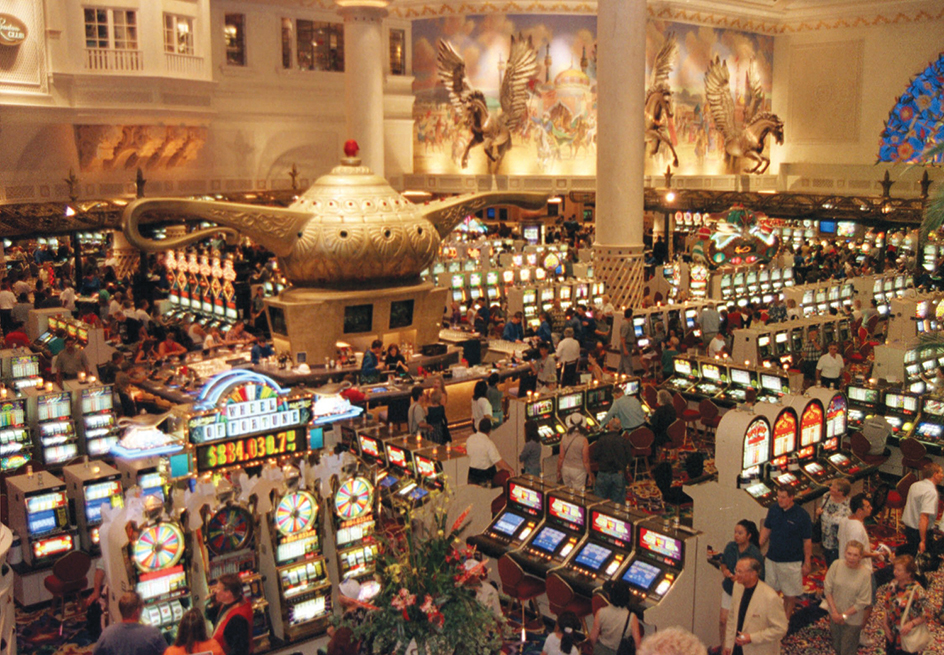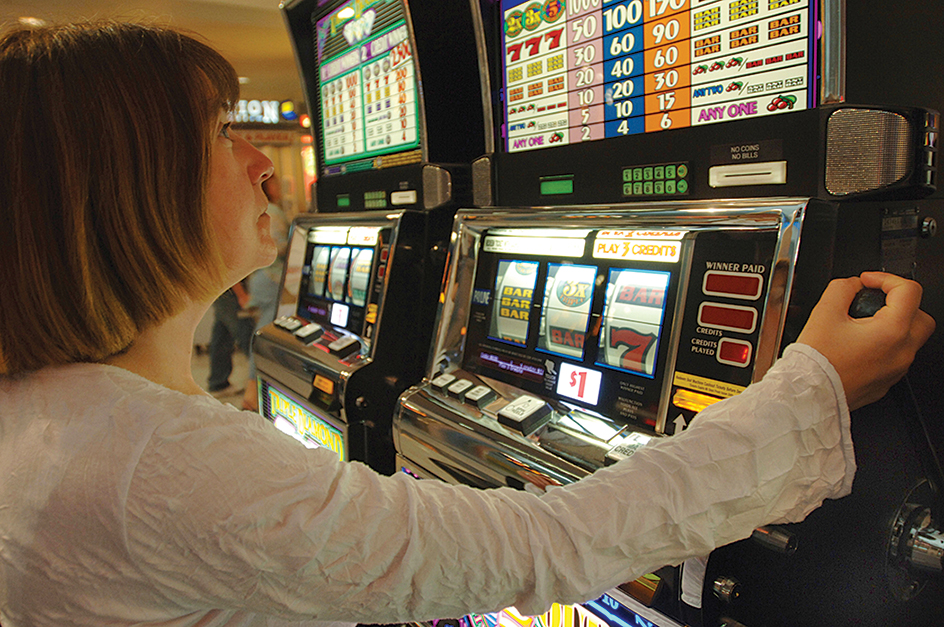Gambling is the act of risking something of value on the outcome of an event in hopes of gain. Usually, money is both the thing of value risked by gamblers and the hoped-for gain. Common types of gambling include lotteries, poker, betting on horse races, and such casino games as blackjack, roulette, and slot machines.

Gambling dates back to ancient times. Betting on horse races, athletic contests, and other events is probably about as old as society itself. Archaeologists have discovered primitive dice that are about 7,000 years old. Playing cards were probably invented in China around A.D. 1100 and arrived in Europe by the 1300’s. People probably began betting on the outcomes of games played with these items soon after their introduction.
Types of gambling
There are two major types of gambling: (1) social gambling and (2) commercial gambling, also known as mercantile gambling. Social gambling includes such games as poker, in which players bet against one another and where each player has a statistically equal chance of winning.
Much modern gambling is commercial. In this type of gambling, players bet against a professional—often an employee of a gambling house. Commercial gambling features games or rules that give the gambling house—or the house, as it is known—a slight statistical edge over the customer. Given enough bets, the house is sure to keep a percentage of all money gambled.
All forms of commercial gambling are negative-expectation games—that is, statistically, customers can expect to lose more money than they win, regardless of their skill level. Commercial gambling providers, such as casinos, race tracks, and lotteries, usually emphasize that players should not gamble more than they can afford to lose. They also urge players not to play for the hope of winning money, but instead for the “entertainment value” of enjoying the games. But most gamblers do hope to be lucky and beat the odds. And some gamblers are unable to rationally control their playing.
Lotteries.
The oldest commercial game, the lottery, appeared in Europe by the early 1500’s. Players in a lottery are usually issued tickets with numbers on them. If enough numbers on a player’s ticket match those selected in a random drawing, the player wins. Modern lotteries in the United States typically are run by a state government. State lotteries generate revenues that are often used for such purposes as funding public education. Lotteries usually return to players only about half of all money wagered. Because the possible payoff is often millions of dollars, players continue to bet, despite the poor odds.
Horse racing
is another form of commercial gambling. Bettors typically wager on whether horses will win or finish in the top three. Races are run over a variety of lengths on tracks around the world.
Sports betting
is a type of gambling in which bettors try to guess which team or participant will win a certain contest. It is an extremely old form of gambling. For many years, Nevada was the only state in the United States to allow sports betting. However, in 2018, the Supreme Court overturned a law that had prohibited other states from regulating and taxing sports betting. Individual states then began to pass their own laws governing this form of gambling.
Casino gambling.
Since the late 1900’s, casinos have expanded throughout the world. Casinos feature several card and dice games, though casinos in the United States make most of their money from slot machines.
Slot machines were invented in San Francisco in the late 1800’s. They were originally mechanical devices that allowed players to insert a coin and spin three reels, which randomly stopped. If the correct symbols appeared on the reel’s center line, the player won a prize. Modern slot machines are computerized and often have video screens with an animation of spinning reels. A random-number generator determines whether the player wins, and the spinning reels or the animated reels land on the appropriate symbols. One popular game, video poker, does not depict reels, but instead shows a poker hand, which players can attempt to improve.

Blackjack, also called twenty-one, is the most popular casino table game. It is a card game in which the player tries to beat the point count in the dealer’s hand without the count of his or her own hand exceeding twenty-one.
Craps, a game played with two dice, is another popular casino game. It features a variety of bets with various house advantages.
Roulette uses a wheel with slotted compartments marked with numbers. Players bet on which number a ball spun into the wheel will fall into, and whether that number is colored black or red or is odd or even.
Baccarat, a card game, is widespread in Europe and Asia and is becoming more common in U.S. casinos.
Poker, a card game in which players bet against one another, was not originally a casino game. Since the game’s popularity has risen, however, many casinos now offer poker. Instead of competing against the poker players, the house charges a small percentage of the pot (money bet on a hand) or takes a fee from the players.
Modern gambling
Nevada legalized casino gambling in 1931, and large casinos began opening there in the 1940’s. In 1976, New Jersey legalized casinos in Atlantic City. In the 1990’s, casinos on Indian reservations spread throughout the United States. Many states also allowed casinos to open up on riverboats and, sometimes, on land.
Gambling in some form is legal in most countries and in all U.S. states except for Utah and Hawaii. Thousands of people work in the gaming industry, and casino taxes are important revenue sources for many states.
Lotteries are the most common form of gambling worldwide, though casinos and sports betting are becoming more important in many countries. Since the late 1990’s, casinos have expanded in Asia, particularly in the Chinese city of Macau, which has the world’s largest casino.
Gambling also takes place on the Internet. Sports betting and poker are the most popular games there.
